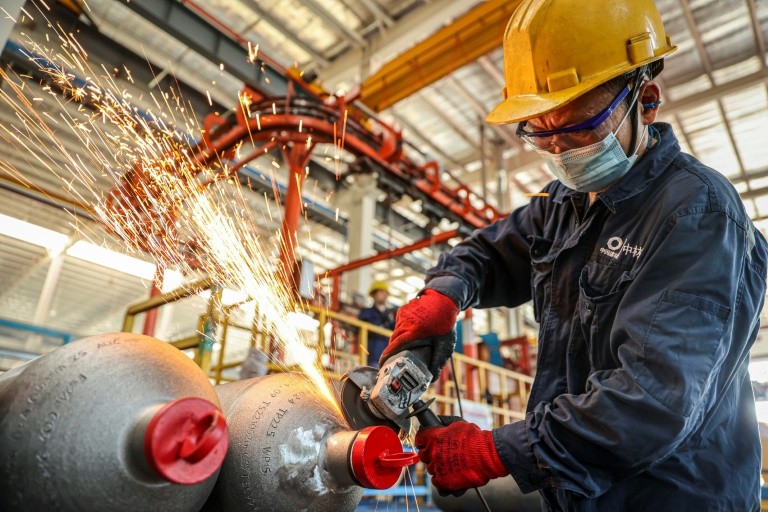
China said on Tuesday it was "fully confident" of hitting its growth target this year but held off more stimulus, disappointing markets and fuelling concern about a lack of detail on a raft of measures unveiled last month.
Beijing has struggled to reignite business activity as officials target around five percent expansion, which analysts say is optimistic given the numerous headwinds, from a prolonged housing crisis to sluggish consumption and local government debt.
Investors had hoped a much-anticipated news conference led by Zheng Shanjie, head of China's National Development and Reform Commission (NDRC), on Tuesday would see the announcement of more economy-boosting policies.
But Zheng and colleagues refrained from laying out any new stimulus -- instead reiterating that "the fundamentals of our country's economic development have not changed".
"We are fully confident in achieving the goals of economic and societal development for the year," the top economic planner said.
"We are also fully confident in maintaining stable, healthy and sustainable development," he added.
Markets in mainland China had soared 10 percent on the opening as traders resumed a blistering rally after a week-long break hoping for more measures from Beijing.
But they pared those gains as the news conference progressed with few concrete details and Shanghai ended the day 4.6 percent higher, while Shenzhen added 8.9 percent. Hong Kong's Hang Seng index was down more than eight percent in the final hour of trading.
"Tuesday's press briefing from China's top economic planner... was supposed to be the big moment, the one where Beijing unleashed a stimulus bazooka," Stephen Innes, Managing Partner at SPI Asset Management said in a note.
"Instead, it was more of a pop gun," he wrote, adding that "Beijing's reluctance to roll out a bigger package is raising serious doubts about the sustainability of this rally".
Analysts had hoped officials would unveil further fiscal support such as trillions of yuan in bond issuances and policies to boost consumption.
They warn that deep reforms to the economic system to relieve the debt crisis in the property sector and boost domestic demand are needed if Beijing is serious about resolving the fundamental obstacles to growth.
But HSBC economists Jing Liu and Erin Xin said "more patience" was needed, adding that the NDRC was "not in a position to announce the complete stimulus package or a specific number".
More fiscal support may yet be revealed by the State Council -- China's cabinet -- and the finance ministry, "to help sustain confidence and shore up growth", they said in a note.
Investors had raced back into stocks on the mainland and Hong Kong since authorities began announcing a raft of stimulus measures to reverse a long period of tepid economic growth.
Many of the measures unveiled so far have been aimed at the flagging housing market, long a key driver of growth but now mired in a prolonged debt crisis exemplified by the fates of developers like Evergrande.
To that end, Beijing's central bank has slashed interest on one-year loans to financial institutions, cut the amount of cash lenders must keep on hand, and pushed to lower rates on existing mortgages.
"With the continued release of various policies, particularly incremental packages, market expectations have recently significantly improved," Zheng said Tuesday.
Several cities -- including the financial crucibles of Shanghai, Guangzhou and Shenzhen -- have also further eased restrictions on buying homes.
Trade tensions between China and Western governments have also weighed on the economic outlook.
Beijing on Tuesday further escalated a months-long squabble with the European Union, saying its customs authorities would start imposing anti-dumping measures on imports of European brandy from Friday in the latest salvo between the two.
The move came after Brussels last week gave the go-ahead to extra tariffs on electric vehicles imported from China, saying Beijing had unfairly subsidised its domestic EV industry to the detriment of European automakers, which China denies.








